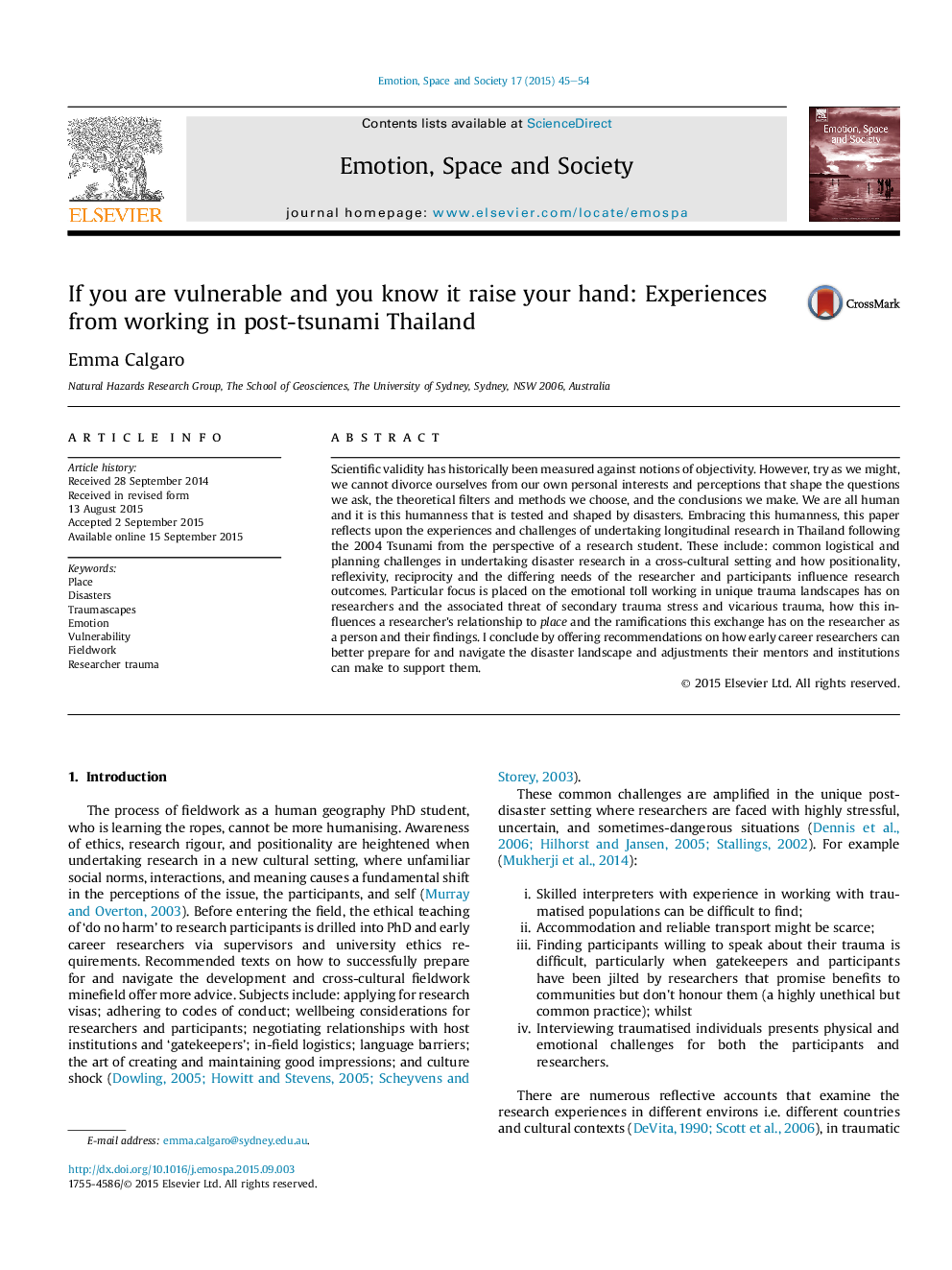| Article ID | Journal | Published Year | Pages | File Type |
|---|---|---|---|---|
| 7323252 | Emotion, Space and Society | 2015 | 10 Pages |
Abstract
Scientific validity has historically been measured against notions of objectivity. However, try as we might, we cannot divorce ourselves from our own personal interests and perceptions that shape the questions we ask, the theoretical filters and methods we choose, and the conclusions we make. We are all human and it is this humanness that is tested and shaped by disasters. Embracing this humanness, this paper reflects upon the experiences and challenges of undertaking longitudinal research in Thailand following the 2004 Tsunami from the perspective of a research student. These include: common logistical and planning challenges in undertaking disaster research in a cross-cultural setting and how positionality, reflexivity, reciprocity and the differing needs of the researcher and participants influence research outcomes. Particular focus is placed on the emotional toll working in unique trauma landscapes has on researchers and the associated threat of secondary trauma stress and vicarious trauma, how this influences a researcher's relationship to place and the ramifications this exchange has on the researcher as a person and their findings. I conclude by offering recommendations on how early career researchers can better prepare for and navigate the disaster landscape and adjustments their mentors and institutions can make to support them.
Related Topics
Social Sciences and Humanities
Psychology
Social Psychology
Authors
Emma Calgaro,
